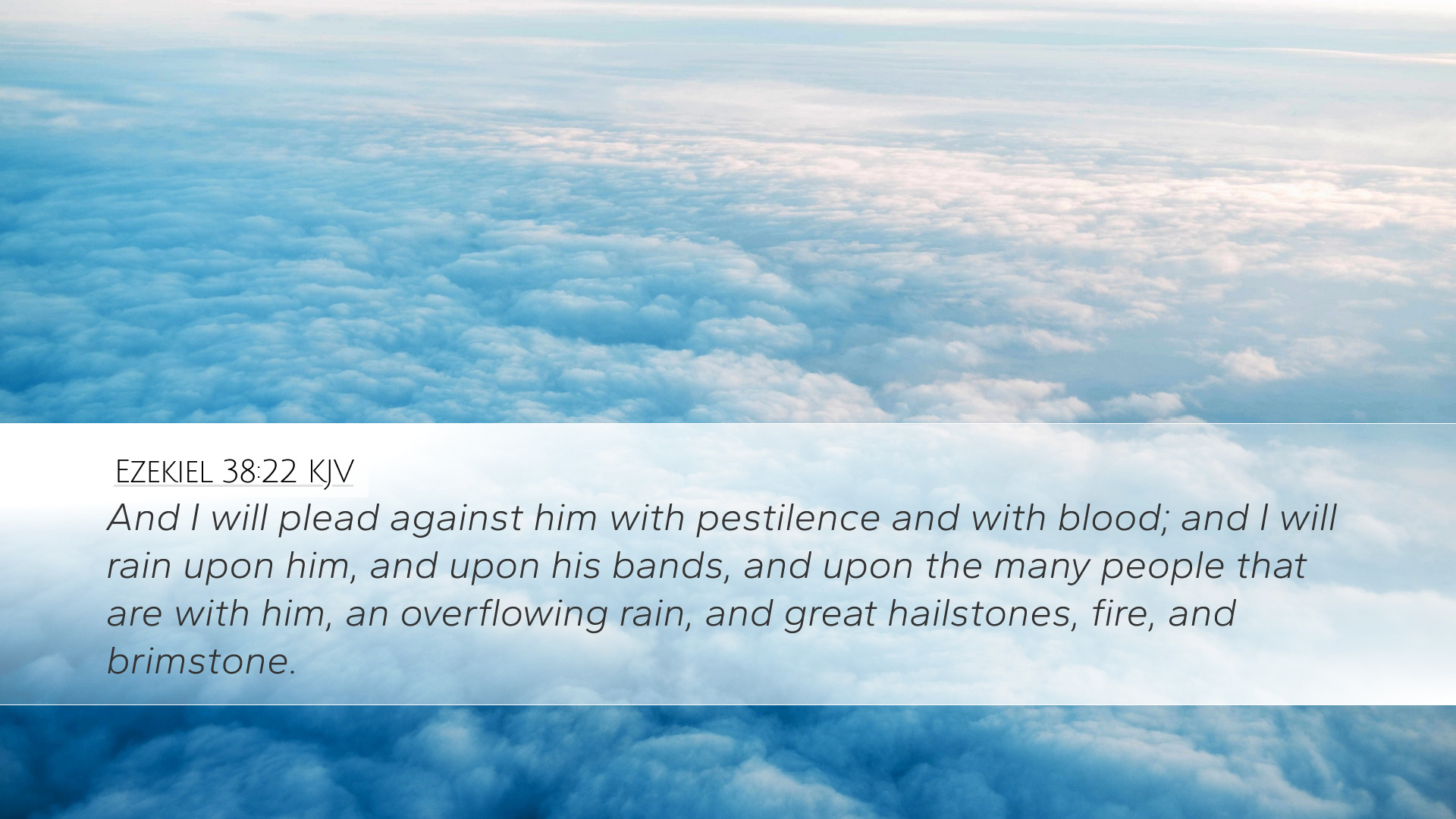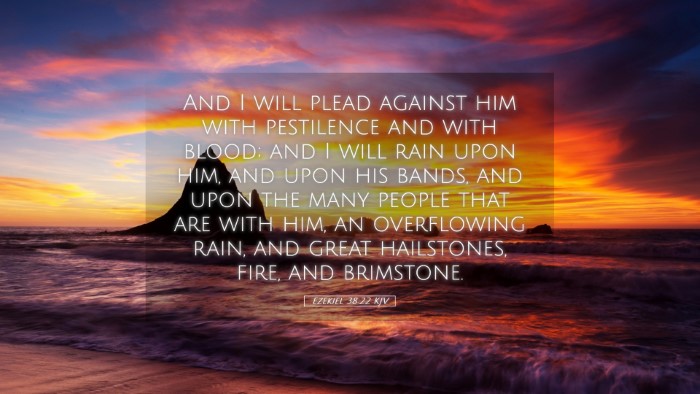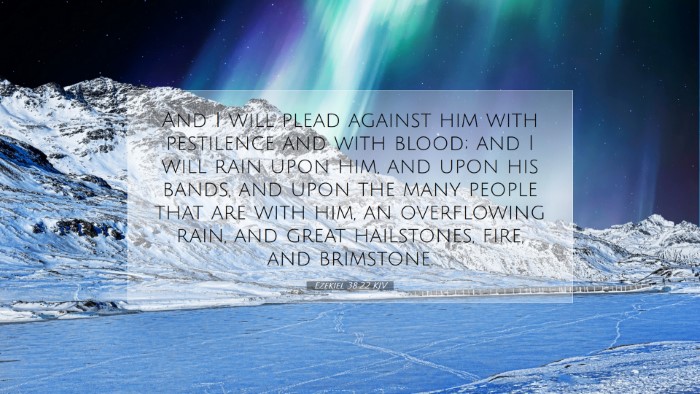Ezekiel 38:22 Commentary
Bible Verse: Ezekiel 38:22 - "And I will plead against him with pestilence and with blood; and I will rain upon him, and upon his bands, and upon the many people that are with him, an overflowing rain, and great hailstones, fire, and brimstone."
Introduction
The prophetic vision contained in Ezekiel 38:22 forms part of a larger narrative in chapters 38 and 39, which describe the coming judgment upon Gog, the prince of Magog, and his confederate nations. This verse is pivotal as it reveals the method of God's judgment against those who rise against His people. Through an intricate amalgamation of supernatural phenomena and plagues, God reasserts His sovereignty.
Commentary Insights
1. Divine Judgment
The phrase "I will plead against him" signifies God's direct intervention on behalf of His people. Matthew Henry notes that "to plead" suggests both a legal context and a divine accusation against Gog. This is not just a passive divine response; it is a vigorous undertaking of God's justice. Albert Barnes elaborates that God's pleading represents both His defense of Israel and His indictment of the aggressor.
2. Means of Judgment
Ezekiel describes a triad of judgments: "pestilence," "blood," and "overflowing rain." Adam Clarke interprets "pestilence" as a critical element in God's judgment, symbolizing the plague of disease that devastates the enemy. The mention of "blood" has dual implications; it could indicate the bloodshed resulting from warfare or possibly a symbol reflecting divine judgment that leads to death.
Further, the "overflowing rain" which follows emphasizes the overwhelming nature of God's wrath. The language evokes imagery aligned with divine destruction, as seen in Sodom and Gomorrah. It indicates not just physical rain but a torrential outpouring of judgment that comes from the heavens, a crucial theme in the prophetic texts.
3. Hailstones, Fire, and Brimstone
The latter part of the verse, which includes "great hailstones, fire, and brimstone," evokes scenes of disastrous judgment often portrayed in Biblical history. Matthew Henry draws parallels to the caliber of divine judgments present in the narratives of the plagues of Egypt and the fall of Sodom. This imagery is particularly powerful as it conveys the intensity and thoroughness of God's retribution.
Albert Barnes connects these catastrophic elements to the idea of a total obliteration of Gog’s forces, showcasing God's unmatched power. The combination of natural elements, like hail and fire, signifies that God uses the very creation He governs to enact His will on earth.
4. Theological Implications
This verse serves to remind the faithful of God’s active governance and protection over His people. Adam Clarke highlights that despite the apparent chaos brought on by hostile forces, God retains full control. The theological implications emphasize the certainty of divine safeguarding action against sin and rebellion.
Moreover, this verse foreshadows eschatological themes where God's ultimate justice will prevail. The visions in Ezekiel are not isolated events but rather fitting within larger biblical prophecy and the consistent portrayal of God’s righteousness. For theologians, this passage can be tied back to the themes of covenant faithfulness and ultimate accountability.
5. Applications for the Faithful
This passage provides nourishment for both spiritual leaders and lay members alike, encouraging reflection on God’s justice and sovereignty. The promise of intervention reassures believers facing adversity; it illustrates that while human governments and forces may contest God’s people, they are powerless against God's might.
- For Pastors: This text serves as a call to remind congregations of the enduring power of God in the face of trials. It serves as an encouragement to teach about God's character as a defender of His people.
- For Theologians: There are rich avenues for exploring the character of God in Scripture, particularly regarding His judgments. This verse prompts scholarly investigation into the nature of divine justice.
- For Students: This text can encourage reflective study on the nature of prophecy, the consequences of rebellion, and the broader theological implications of God’s intervention.
Conclusion
In Ezekiel 38:22, we encounter a vivid portrayal of God's judgment that serves multiple purposes: it reinforces God's sovereignty, reminds believers of His faithful protection, and warns nations in rebellion against Him. Through public domain commentaries, we uncover layers of meaning that resonate with pastoral care, scholarly exploration, and personal reflection. Recognizing God's ultimate power over earthly rulers and events transforms our understanding of divine providence and hope for the future.


